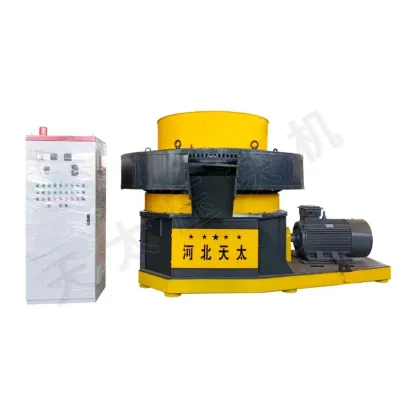Dec. 19, 2023
Machinery
A biomass briquetting machine is a specialized piece of equipment designed to convert biomass materials into a compact, solid, and energy-dense form known as biomass briquettes. These machines play a crucial role in addressing environmental concerns related to waste disposal and fossil fuel usage. Here's an overview of what biomass briquetting machines are and their key features:
Key Components of a Biomass Briquetting Machine:
Feeding System:
The feeding system is responsible for introducing raw biomass materials into the briquetting machine. This can include a hopper or conveyor belt for efficient material handling.
Crushing System:
In some cases, biomass materials may need to be crushed or processed before briquetting. The crushing system ensures that the biomass is in an optimal form for compaction.
Briquetting Chamber:
The heart of the machine, the briquetting chamber, is where the raw biomass is compressed into briquettes. The chamber typically contains a die and a set of rollers or pistons that apply pressure to form the briquettes.
Binder and Additives:
Depending on the composition of the biomass, binders or additives may be added during the briquetting process. These substances help improve the binding properties of the briquettes.
Heating System:
Some briquetting machines may include a heating system to facilitate the binding process. Heat is applied to the biomass, helping the binding agents work effectively.

Cooling System:
After the briquettes are formed, a cooling system may be employed to stabilize the briquettes and ensure they maintain their shape. This can be important for storage and transportation.
Control System:
Modern biomass briquetting machines often feature electronic control systems that allow operators to monitor and control the entire process, optimizing efficiency and output.
How Biomass Briquetting Machines Work:
Material Preparation:
Biomass materials such as wood chips, sawdust, agricultural residues, or other organic wastes are collected and prepared for the briquetting process.
Feeding:
The prepared biomass is fed into the briquetting machine through a feeding system, ensuring a continuous and controlled input of material.
Compression:
Within the briquetting chamber, the biomass is subjected to high pressure from rollers or pistons, compacting it into the desired briquette shape.
Binding:
Binders or additives, if used, are introduced during the compression process to enhance the binding properties of the biomass particles, creating solid and durable briquettes.
Cooling and Solidification:
The formed briquettes pass through a cooling system to stabilize their structure. This step is essential for maintaining the integrity of the briquettes.
Collection and Storage:
The finished biomass briquettes are collected and can be stored for later use or transported for various applications.
Benefits of Biomass Briquetting Machines:
Renewable Energy Production:
Biomass briquettes serve as a renewable energy source, contributing to a sustainable and eco-friendly energy landscape.
Waste Utilization:
The machines enable the utilization of agricultural residues, forestry waste, and other biomass materials that might otherwise be disposed of as waste.
Reduced Greenhouse Gas Emissions:
By providing an alternative to traditional fossil fuels, biomass briquetting helps reduce greenhouse gas emissions and combat climate change.
Cost-Effective:
Biomass briquetting offers a cost-effective solution for converting biomass into an energy-dense form, potentially replacing more expensive or less sustainable fuel sources.
Versatility:
Biomass briquetting machines can process a variety of biomass materials, making them versatile for different industries and applications.
In summary, a biomass briquetting machine is a valuable tool for converting biomass materials into a more convenient and environmentally friendly form, contributing to sustainable energy practices and waste utilization.
If you are interested in sending in a Guest Blogger Submission,welcome to write for us!
All Comments ( 0 )